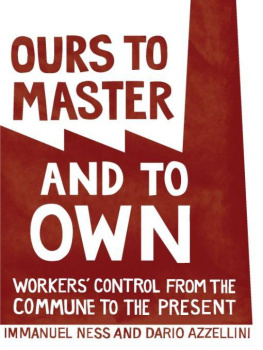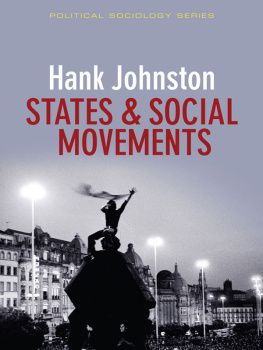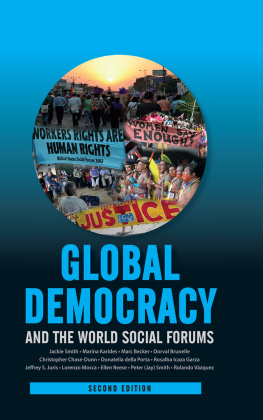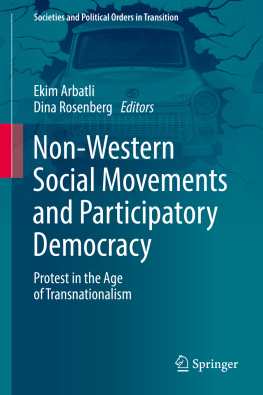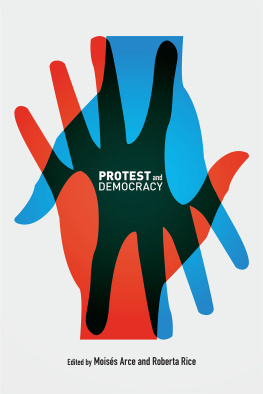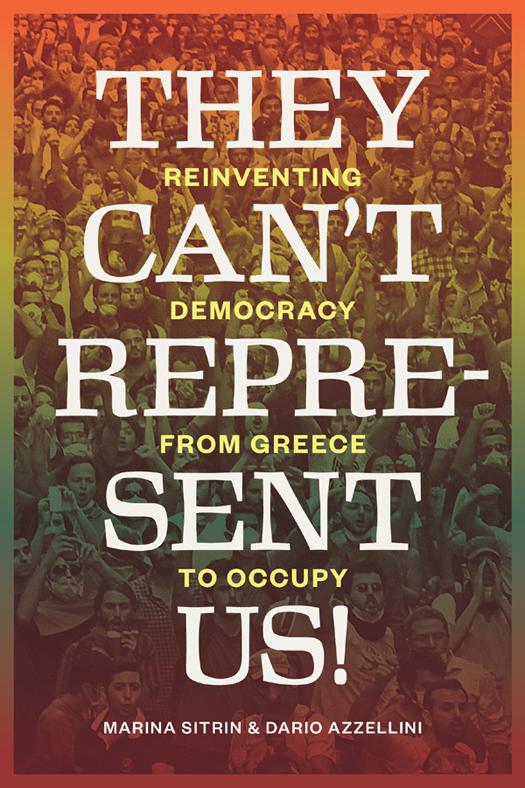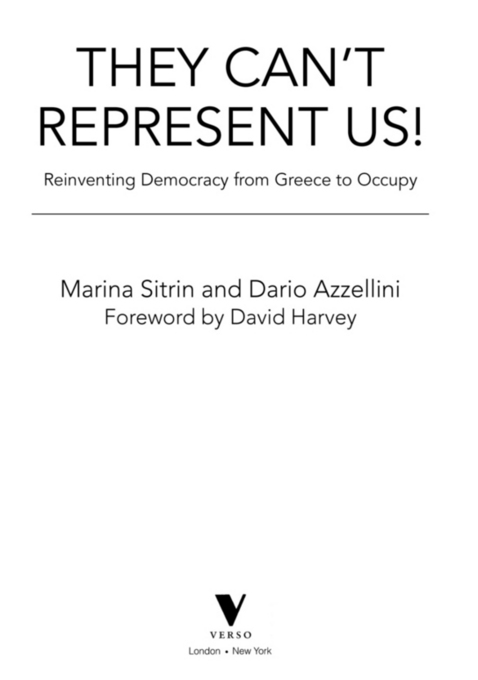Acknowledgments
T his book, while an incredibly exciting project for the both of us, pales in comparison to the life project to whom it is dedicatedCamilo Turi Azzelini Sitrinborn together with these pages.
We have so very many people to thank, from those who thought together with us about some of these ideas or helped us with editing, transcribing and translating, to others who graciously housed and fed us while traveling, and others who trusted us and brought us into their assemblies and smaller gatherings and then those who patiently read draft chapters and sent us reflections. Since we cannot possibly go into the necessary detail for each person, as it would require another chapter our editors will not permit, we do hope you each know how much we appreciate you. If by chance we have forgotten to list your name, please know it was an oversight and we are sorry. While not nearly sufficient, we have made a list of those people who have supported this project.
Clauida Acua in Argentina; Alexandros, Anestis, Fani, Marita, Theo, and Vasilis, in Greece; Ana Mndez de Andz, Ernest Marco, Eva Fernndez, Gerardo Tudur, and Luis Moreno Caballud in Spain; Marisa Holmes, Carolina Cositore, Sherman Sitrin, David Solnit, David Harvey, and the Committee on Globalization and Social Change at the CUNY Graduate Center in the United States; Benjamin Anaya in Mexico.
An extra special thanks to the Verso crew for getting the book out extra fast considering the delay.
And most of all thank you to everyone who agreed to participate in conversations and interviews so that this book could be created and all people who are creating new worlds based on real democracy and freedom every day.
First published by Verso 2014
Marina Sitrin and Dario Azzellini 2014
Foreword David Harvey 2014
All rights reserved
The moral rights of the authors have been asserted
Verso
UK: 6 Meard Street, London W1F 0EG
US: 20 Jay Street, Suite 1010, Brooklyn, NY 11201
www.versobooks.com
Verso is the imprint of New Left Books
ISBN-13: 978-1-78168-097-1
eISBN-13: 978-1-78168-237-1 (US)
eISBN-13: 978-1-78168-542-6 (UK)
British Library Cataloguing in Publication Data
A catalogue record for this book is available from the British Library
Library of Congress Cataloging-in-Publication Data
Sitrin, Marina.
They can>t represent us! : reinventing democracy from Greece to Occupy / Marina Sitrin and
Dario Azzelini; foreword by Eduardo Galeano.
pages cm
ISBN 978-1-78168-097-1 (paperback) ISBN 978-1-78168-237-1 (ebk)
1. Democracy. 2. Political participation. 3. Protest movements. I. Azzellini, Dario, 1967 II.
Title.
JC423.S62 2014
321.8dc23
2014007296
v3.1
Contents
Foreword by
David Harvey
S omething the last several years have shown, with the rise of new radical movements worldwide, is that peopleon the street, in the squaresare what really matter in the end. Thats the only political force weve got. Theyve got the money and can buy politics, media and, really, anything they want. We dont have that. The only thing we have is people. But we have a mass. And the more people that mass in the street, the harder it becomes for them to say, Your interests are not our interests.
A succession of crises has plagued the economies of the West since 2008. But for whom are these crises? In 2008, Forbes magazine counted 1,125 billionaires worldwide, with a net worth of $4.4 trillion, and despite a dip to 793 billionaires in 2009, the number has risen steadily to 1,645 billionaires in 2014, with a net worth of $6.4 trillion. The crisis has simply provided an opportunity to assemble even more wealth in fewer hands, at the expense of those who are the most vulnerable. At the same time, the real questions we should have asked in the wake of the crisis were not addressed: the questions of global poverty, global inequality of wealth and income, and inequality of political power. We rarely discuss how wealth is being used to buy politics, despite its being (or perhaps because it is) an old tradition. The United States always has the best Congress that money can buy, as Mark Twain famously remarked.
This is how politics has been evolving over the last thirty years. Money has always bought influence and political powerand structured the mediabut it does so now more than ever. It dominates our educational system, and university departments are now little more than sites for spreading neoliberal ideology, or teaching corporate managerial techniques that are essentially strategies for squeezing more money out of those who can least afford it. Meanwhile, the prevailing view on how to resolve the question of global poverty is to set up more NGOs and institutions to provide direct services to people in need, including providing blankets or medical care. This certainly has some benefits, but the problem is that we cannot truly confront global poverty without targeting the accumulation of global wealth. Until we leave the anti-poverty campaigns behind and join the anti-wealth campaigns, nothings going to be resolved.
Im old enough to remember the anti-poverty rhetoric of the 1950s and 1960s. Every decade since, this rhetoric has reappeared in slightly modified form; the Millennium Goals promised to eliminate extreme poverty by 2015, but with one year to go, it is clear this goal will not be reached. We hear these statements again and again, even as global poverty deepens, because the solutions we are being sold are the very same set of mechanisms that produce it. In other words: free markets, free trade, free rein for the capitalist class to exploit, to the hilt, everybody that they can get their hands on. But capitalists are no longer restricted to simply exploiting labor. Increasingly, the accumulation of wealth is occurring through the dispossession of others wealth, through legal means such as eminent domain that allow them to drive populations off their land. A worldwide land grab is occurring, which will give a small group of people effective control over all of the resources that allow social life to flourish. We cannot let this concentration of wealth continue. It has to be stopped. It has to be reversed.
How do we do this when we dont have the money to buy political influence or airtime on TV? The answer is to assemble in public places, as countless people have done since 2011, and then to stay put. The answer is not to have a demonstration and then go home. No. You stay. We stay.
The reproduction of Capital (and society) incurs certain costs, including the costs of education, healthcare, basic human services, caring for the elderly, and dealing with the side effects of alienation in terrible work environments. But Capital tries to shed those costs. Economists call them externalities, a concept which transforms costs that Capital should bear into costs that othersprivate individualsare liable for.
Our political task is to force Capital to bear all of those costs. We should have free, decent education for everybody, which is of equal quality no matter what your income or where you live, whether it is the suburbs or the inner city. The same applies to healthcare and social services; they must all be revolutionized. What we want is not simply the re-establishment of a bureaucratic welfare state, but rather the restoration of the right to decent healthcare and decent caring, to be rendered on a popular basis. Popular assemblies, not politicians, should be the bodies that decide on hospital populations. Meanwhile, indigenous populations in particular are bearing the greatest costs of environmental degradation, even while Capital and industry are most responsible. Capital must be forced to bear those costs as well, but will not do so voluntarily.


